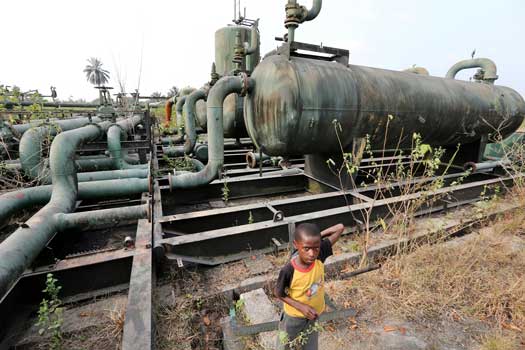
One of Nigeria’s major oil and gas operators, Shell Petroleum Development Company (SPDC) has said that insecurity in the Niger Delta region is slowly crippling its operations in the country.
According to the company’s latest report, crude oil theft, vandalisation of oil and gas facilities, sabotage, insecurity and environmental pollution aggravated by illegal refining and third party interference have severely impacted negatively on oil and gas operations.
The report revealed that 90% of oil spills in the region were caused by crude oil theft, sabotage and vandalism, which caused huge volumes of oil to be spilled from the Shell-operated Joint Venture (SPDC-JV) pipelines in 2016.
The report also raised concerns over threats from self-acclaimed militant groups, host communities and offshore pirates which have led to losses in the revenue that accrues to domestic producers and the federal government as well as disruption in gas supplies to power plants that provide electricity for industries, businesses and millions of homes.
The report however revealed that the decline in oil theft, spills and act of sabotage that was witnessed last year was due to improvements in the use of air and ground surveillance and the response of security forces.
“Oil spills due to crude oil theft and sabotage of facilities (referred to as third party interference), as well as illegal refining cause the most environmental damage from oil and gas operations in the Niger Delta,” the report said.
“The reduction in oil theft and sabotage-related spills from the previous year can be attributed to continued improvements in air and ground surveillance and response by government security forces,” the report added.
It maintained that Shell’s goal was to eliminate spills emanating from either saboteurs or operations, adding that the safety of its workers and protection of the environment still remains their major priority.

NNPC Ltd Enters Final Stages Of Preparation For Public Listing
Dangote Refinery Halts Naira Sales, Cites Dollar-Denominated Crude Costs
Court Orders Arraignment Of Ex-First Bank Executives Over Alleged ₦12.3Bn Fraud
Renaissance Energy Completes Landmark Acquisition Of SPDC